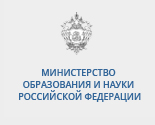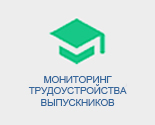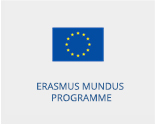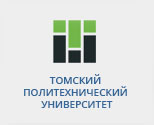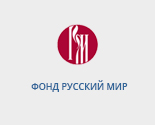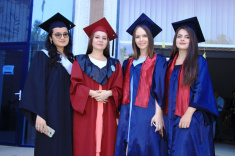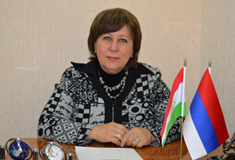Вестник РТСУ
Вахобов А.А., Хусейнова М.В. Агент-ориентированные методологии организационных структур управления
УДК 004.457:005.7
АГЕНТ-ОРИЕНТИРОВАННЫЕ МЕТОДОЛОГИИ ОРГАНИЗАЦИОННЫХ СТРУКТУР УПРАВЛЕНИЯ
Вахобов Абдувахоб Ахадович
Кандидат экономических наук,
доцент кафедедры управления экономикой и маркетинга
Худжандский государственный университет имени акад. Б.Гафурова
735700, Республика Таджикистан, Худжанд, пр. Мавлонбекова, 1
Тел.: (+992) 92 777 12 05(м)
Хусейнова Мавзуна Ворисджоновна
Кандидат экономических наук,
доцент кафедедры управления экономикой и маркетинга
Худжандский государственный университет имени акад. Б.Гафурова
735700, Республика Таджикистан, Худжанд, пр. Мавлонбекова, 1
Тел.: (+992) 92 756 28 05(м)
Агентская технология – это программная парадигма, которая позволяет реализовывать большие и сложные распределенные приложения. В целях содействия разработке многоагентных систем агентно-ориентированные методологии (AOM) были созданы в последние годы для поддержки моделирования все более сложных приложений. Агенты воспринимаются как автономные субъекты, которые действуют в соответствии с некоторыми целями, они также члены общества и должны обмениваться информацией с другими агентами, поддерживая некоторые отношения на организационном уровне.
АОМ обычно позволяют разработчикам анализировать требования системы, дизайн и, в некоторых случаях, переводить весь анализ и проектирование моделей в прототип с использованием специального языка программирования. Исследования АОМ показали, что каждая из них предлагает различный уровень возможности моделирования организационных структур. Следовательно, разработчики агентов должны рассмотреть эти различия, чтобы выбрать методологию, которая соответствует требованию поставленных задач.
В статье анализируются наиболее заметные АОМ, обращается внимание на поддержку и возможности, которые они предлагают для моделирования организационных структур с различными уровнями сложности. Это даёт возможность помочь разработчикам при выборе наиболее подходящей методологии с учетом социальных и организационных требований развертываемой многоагентной системы.
Ключевые слова: агент; программные агенты; агентно-ориентированные методологии организации; структура управления.
1. Бахтизин А.Р. Агент-ориентированные модели экономики. – М.: Экономика,2008. – 279 с.
2. Вахобов А.А. Агент-ориентированные модели: новый инструмент исследования в общественных науках / А.А.Вахобов, З.З.Зайнидинов, М.В.Хусeйнoва // Вeстник Таджикскoгo нациoнальнoгo унивeрситeта. Сeрия экoнoмичeских наук. – Душанбe: Сино, 2015. – № 2/4(169). – С. 171-175.
3. Хусeйнoва М.В. Дeкoмпoзициoнный пoдхoд к прoeктирoванию oрганизациoннoй структуры управлeния экoнoмикoй рeгиoна // Вeстник Таджикскoгo нациoнальнoгo унивeрситeта. Сeрия экoнoмичeских наук. – Душанбe: Сино, 2015. – № 2/4(169). – С.283-287.
4. Argente E. Multi-agent system development based on organizations / E.Argente, V.Julian, V.Botti // Electron. Notes Theor. Comput. – 2006. – Sci. 150. –Р.55-71.
5. Bauer B. Methodologies and modeling languages / B.Bauer, J.Müller, In: Luck M., Ashri R., D’Inverno M. (Eds.), Agent-based Software Development // Artech House, Inc. – Norwood: MA, 2004. –Р.77-131.
6. Cossentino M. ASPECS: anAgent-oriented Software Process for Engineering Complex Systems: How to design agent societies under a holonic perspective / M.Cossentino, N.Gaud, V.Hilaire, S.Galland, A.Koukam // Auton. Agents Multi-Agent Syst. – 2010. DOI: 10.1007/s10458-009-9099-4.
7. DeLoach S.A. The MaSE methodology / S.A.DeLoach. In: Bergenti F., Gleizes M.P., Zam- bonelli, F. (Eds.) // Methodologies and Software Engineering for Agent Systems: The Agent-oriented Software Engineering Handbook. – Kluwer Academic Publish. – 2004. –Р.107-125.
8. Ferber J. From agents to organizations: an organizational view of multi-agent systems / J.Ferber, O.Gutknecht, F.Michel, In: Giorgini P., Müller J., Odell, J. (Eds.) // 4th International Workshop on Agent-oriented Software Engineering IV; AOSE 2003. – Springer Berlin/Heidelberg, Melbourne, Australia, 2003. –Р.214-230.
9. FIPA Design Process Documentation and Fragmentation Working Group. / Foundation for Intelligent and Physical Agents, IEEE-FIPA, Geneva, Switzerland. Fox, M.S., 1981. An organizational view of distributed systems. IEEE Trans. // FIPA, 2009. Syst. Man Cybern. 11. –Р.70-80.
10. Fuentes-Fernández, R. A technique for defining agent-oriented engineering processes with tool support / R.Fuentes-Fernández, I.García-Magarin˜o, A.M.Gómez-Rodríguez, J.C.González-Moreno. 2010. – Eng. Appl., Artif.Intell.23. –Р.432-444.
11. Gómez-Sanz J. Methodologies for developing multi-agent systems / J.Gómez-Sanz, J.Pavón // J.Univ. Comput. – 2004. – Sci. 10. –Р.359-374.
12. Horling B. A survey of multi-agent organizational paradigms / B.Horling, V.Lesser // Knowl. Eng. – 2005. – Rev.19. –Р.281-316.
13. Iglesias C.A. A survey of agent-orientedmethodolo-gies / C.A.Iglesias, M.Garijo, J.C.González. In: Müller J., Singh M.P., Rao A.S. (Eds.) // 5th International Workshop on Intelligent Agents V: Agent Theories, Architectures, and Languages (ATAL’98) //Springer Verlag. – Paris, France, 1999. –Р.317-330.
14. Kelly S. Meta Edit+: a fully configurable multi-user and multi-tool CASE and CAME environment / S.Kelly, K.Lyytinen, M.Rossi. In: Constantopoulos P., Mylopoulos J., Vassiliou Y. (Eds.), Advanced Information Systems Engineering //Proc. of 8th International Conference, CAiSE 1996. – Springer Berlin/Heidelberg, Heraklion, Crete, Greece, 1996. –Р.1121.
15. Sturm A. A framework for evaluating agent-oriented methodologies / A.Sturm, O.Shehory. In: Giorgini P., Henderson-Sellers B., Winikoff M. (Eds.) // 5th International Bi-Conference Workshop, AOIS 2003. – Springer Berlin. Heidelberg, Melbourne and Chicago, 2003. –Р.94-109.
16. Sudeikat J. Evaluation of agent-oriented software methodologies-examination of the gap between modeling and platform / J.Sudeikat, L.Braubach, A.Pokahr, W.Lamersdorf. In: Odell J., Giorgini P., Müller J.P. (Eds.) // 5th International Workshop on Agent-oriented Software Engineering, AOSE 2004. – Springer Berlin. Heidelberg, New York, NY, 2004. –Р.126-141.
17. Wooldridge M. An introduction to multiagent systems // JOHN WILEY &SONS, LTD, 2002. – 484р.
18. Zambonelli F. Developing multiagent systems: the Gaia methodology / F.Zambonelli, N.Jennings, M.Wooldridge // ACM Trans. Soft. Eng. Methodol.12. – 2003. –Р.317-370.
AGENT-BASED METHODOLOGIES OF ORGANIZATIONAL MANAGEMENT STRUCTURES
Vakhobov Abduvahob Akhadovich
Candidate of economical sciences,
associate professor of the chair of economic management and marketing
Khujand state university of B.Gafurov
735700, Republic of Tajikistan, Khujand, Mavlonbekov ave., 1
Ph.: (+992) 92 777 12 05 (m)
Khuseynova Mavzuna Vorisjonovna
Candidate of economical sciences,
associate professor of the chair of economic management and marketing
Khujand state university of B.Gafurov
735700, Republic of Tajikistan, Khujand, Mavlonbekov ave., 1
Ph.: (+992) 92 756 28 05 (m)
The article deals with agent technology which is a software paradigm that enables large and complex distributed applications to be implemented. To facilitate the development of multi-agent systems, agent-based methodologies (ABM) have been created in recent years to support the modeling of increasingly complex applications. Agents are perceived as autonomous entities that act in accordance with some goals; they are also members of society and must exchange information with other agents, maintaining some relationships at the organizational level.
ABM typically allow developers to analyze system requirements, design, and, in some cases, translate all analysis and model design into a prototype using a specific programming language. ABM studies have shown that each of them offers a different level of ability to model organizational structures. Consequently, agent designers must consider these differences in order to select a methodology that meets the requirements of the assigned tasks.
In the article, the most notable ABM is analyzed; attention is paid to the support and opportunities they offer for modeling organizational structures with different levels of complexity. This provides an opportunity to assist developers in choosing the most appropriate methodology, taking into account the social and organizational requirements of the multi-agent system being deployed.
Keywords: agent; software agents; agent-based organization methodologies; management structure.
References
1. Bakhtizin A.R. Agent-based models of the economy. – M.: Economics, 2008. – 279 p.
2. Vakhobov A.A. Agent-based models: a new research tool in social sciences / A.A.Vakhobov, Z.Z.Zainidinov, M.V.Khuseynova // Bulletin of the Tajik national university. Series of economic sciences. – Dushanbe: Sino, 2015. – № 2/4 (169). – P.171-175.
3. Khuseynova M.V. Decompositive approach to designing the organizational structure of managing the economic region // Bulletin of the Tajik national university. Series of economic sciences. – Dushanbe: Sino, 2015. – № 2/4 (169). – P.283-287.
4. Argente E., Julian V., Botti V. Multi-agent system development based on organizations // Electron. Notes Theor. Comput. - 2006. - Sci. 150. -Р.55-71.
5. Bauer B. Methodologies and modeling languages / B.Bauer, J.Müller, In: Luck M., Ashri R., D'Inverno M. (Eds.), Agent-based Software Development // Artech House, Inc. - Norwood: MA, 2004. -P.77-131.
6. Cossentino M. ASPECS: an Agent-oriented Software Process for Engineering Complex Systems: How to design agent societies under a holonic perspective / M.Cossentino, N.Gaud, V.Hilaire, S.Galland, A.Koukam // Auton. Agents Multi-Agent Syst. - 2010. DOI: 10.1007 / s10458-009-9099-4.
7. DeLoach S.A. The MaSE methodology / S.A.DeLoach. In: Bergenti F., Gleizes M.P., Zambonelli, F. (Eds.) // Methodologies and Software Engineering for Agent Systems: The Agent-oriented Software Engineering Handbook. – Kluwer Academic Publish. – 2004. – Р.107-125.
8. Ferber J. From agents to organizations: an organizational view of multi-agent systems / J. Ferber, O. Gutknecht, F. Michel, In: Giorgini P., Müller J., Odell, J. (Eds.) // 4th International Workshop on Agent-oriented Software Engineering IV; AOSE 2003. – Springer Berlin / Heidelberg, Melbourne, Australia, 2003. – P.214-230.
9. FIPA Design Process Documentation and Fragmentation Working Group. / Foundation for Intelligent and Physical Agents, IEEE-FIPA, Geneva, Switzerland. Fox, M.S., 1981. An organizational view of distributed systems. IEEE Trans. // FIPA, 2009. Syst. Man Cybern. 11. – Р.70-80.
10. Fuentes-Fernández, R. A technique for detecting agent-oriented engineering processes with tool support / R.Fuentes-Fernández, I.García-Magarin˜o, A.M.Gómez-Rodríguez, J.C.González-Moreno. – 2010. – Eng. Appl., Artif.Intell. 23. –Р.432-444.
11. Gómez-Sanz J. Methodologies for developing multi-agent systems / J.Gómez-Sanz, J.Pavon // J.Univ. Comput. – 2004. – Sci. 10. –Р.359-374.
12. Horling B. A survey of multi-agent organizational paradigms / B.Horling, V.Lesser // Knowl. Eng. – 2005. – Rev.19. –P.281-316.
13. Iglesias C.A. A survey of agent-orientedmethodolo-gies / C.A.Iglesias, M.Garijo, J.C.González. In: Müller J., Singh M.P., Rao A.S. (Eds.) // 5th International Workshop on Intelligent Agents V: Agent Theories, Architectures, and Languages (ATAL’98) // Springer Verlag. – Paris, France, 1999. –Р.317-330.
14. Kelly S. Meta Edit+: a fully configurable multi-user and multi-tool CASE and CAME environment / S.Kelly, K.Lyytinen, M.Rossi. In: Constantopoulos P., Mylopoulos J., Vassiliou Y. (Eds.), Advanced Information Systems Engineering // Proc. of 8th International Conference, CAiSE 1996. – Springer Berlin / Heidelberg, Heraklion, Crete, Greece, 1996. –Р.1121.
15. Sturm A. A framework for evaluating agent-oriented methodologies / A.Sturm, O.Shehory. In: Giorgini P., Henderson-Sellers B., Winikoff M. (Eds.) // 5th International Bi-Conference Workshop, AOIS 2003. – Springer Berlin. Heidelberg, Melbourne and Chicago, 2003. –Р.94-109.
16. Sudeikat J. Evaluation of agent-oriented software methodologies-examination of the gap between modeling and platform / J.Sudeikat, L.Braubach, A.Pokahr, W.Lamersdorf. In: Odell J., Giorgini P., Müller J.P. (Eds.) // 5th International Workshop on Agent-oriented Software Engineering, AOSE 2004. – Springer Berlin. Heidelberg, New York, NY, 2004. –Р.126-141.
17. Wooldridge M. An introduction to multiagent systems // JOHN WILEY &SONS, LTD, 2002. – 484 р.
18. Zambonelli F. Developing multiagent systems: the Gaia methodology / F.Zambonelli, N.Jennings, M.Wooldridge // ACM Trans. Soft. Eng. Methodol.12. – 2003. –Р.317-370.
- Поступающим
-
Обучающимся
- Обучение
- Дистанционное обучение
- Расписание занятий
- Расписание экзаменов
- Студенческие сообщества
- Восстановление
- Общежитие
- Столовая
- Студенческий профсоюз
- Студенческие вести
- Стипендия и социальная поддержка
- Требования к внешнему виду студентов РТСУ
- Этический кодекс студента РТСУ
- Открытые лекции (Презентации)
- Ознакомление с культурой РФ
- Выпускнику
-
Университет
-
Сведения об образовательной организации
- Основные сведения
- Структура и органы управления образовательной организацией
- Документы
- Образование
- Образовательные стандарты
- Руководство. Педагогический (научно-педагогический) состав
- Материально-техническое обеспечение и оснащенность образовательного процесса
- Стипендии и иные виды материальной поддержки
- Платные образовательные услуги
- Международное сотрудничество
- Финансово-хозяйственная деятельность
- Доступная среда
- Канцелярия РТСУ
- Прочие сведения
- Ректор
- Ученый совет университета
- Учебно-методическое управление
- Отдел кадров
- Профсоюз
- Библиотека
- Программа развития университета
- Институт повышения квалификации
-
Центры
- Русский центр «Русский мир»
- Центр культуры
- Радиолаборатория РТСУ
- Учебная ТВ-студия РТСУ
- Центр таджикского языка
- Центр тестирования по русскому языку
- Ресурсный центр по туризму
- Центр геополитических исследований
- Междисциплинарный центр региональных исследований
- Информационно-ресурсный центр ООН в РТ
- Центр обучения 1С-бухгалтерии
- Информационный центр РТСУ
- Центр русского языка и культуры
- НИЦ по противодействию терроризму и экстремизму
- Научно-исследовательский институт проблем миграции при РТСУ
- Технопарк РТСУ
- Школа РТСУ
- РТСУ глазами фотографа
- Фильмотека РТСУ
- Министерство образования и науки РТ
- Министерство науки и высшего образования РФ
-
Сведения об образовательной организации
-
Факультеты
- Факультет истории и международных отношений
- Естественно-научный факультет
- Факультет русской филологии, журналистики и медиатехнологий
- Факультет иностранных языков
- Факультет экономики и управления
- Юридический факультет
-
Наука
- Управление науки и инноваций
- Вестник РТСУ
- Научные направления университета
- Научно-исследовательские проекты
- Публикационная активность
- Публикация преподавателей РТСУ
- Молодые ученые
- Научно-исследовательская работа студентов
- Открытые международные студенческие Интернет-олимпиады
- Международная деятельность
-
Воспитательная работа
- Отдел воспитания и молодежной политики
- Доступная среда
- Центр культуры
- Молодежное издание «Студенческие вести»
- Молодежный ресурсный центр
- Краеведческий клуб "Мой край родной"
- Дебатный клуб
- Клуб "Достойный Гражданин"
- Школа лидеров
- Студенческий информационный центр
- Совет женщин и девушек РТСУ
- Школа кураторов
- Спортивные секции и клубы
- ⌂

